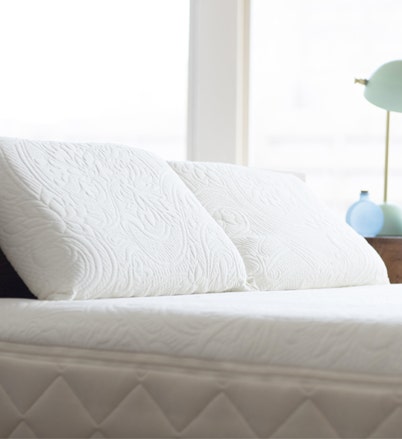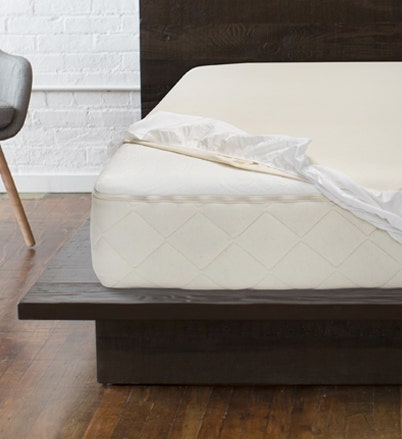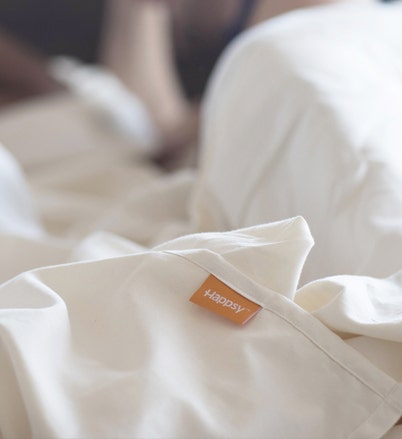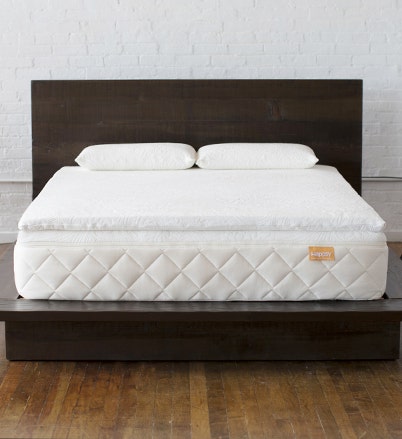
It’s estimated that between 50 and 70 million Americans are currently struggling with ongoing sleep issues. From insomnia to sleep apnea, these sleep deprivation problems can lead to a whole host of nasty side effects. Cases are on the rise, too, with many blaming more digital devices for a decline in sleep quality.
But could internet addiction really be the cause of your sleep deprivation?
What is internet addiction?


If you find yourself excessively scrolling, you might have an internet addiction. The term refers to a deep desire to spend a huge amount of time plugged into the internet, causing other aspects of your life – such as relationships and health – to suffer.
But is the internet addicting, really? Internet use can create a ‘high’ for some people due to increased dopamine levels. To maintain this happy, rewarding feeling, you want to continue reaching for your smartphone or laptop, leading to more and more time spent online the longer you allow it to continue.
When we talk about internet addiction, we’re not just talking about 10 minutes of social media scrolling before bed. This is a far more serious problem. With over 180 centers in America specializing in treating patients for internet addiction, it’s a very real problem that many people face.
Signs of an internet addiction
Mild use of digital devices can affect anyone’s sleep. But internet addiction is much more than that, and it can lead to more serious sleep deprivation. Some signs you might suffer from an internet addiction include:
- Spending increasing hours online to feel satisfied
- Feelings of anxiety and mood swings when you can’t go on the internet
- Using the internet to distract you from negative feelings or events
- Neglecting other areas of your life (e.g. passions, relationships and work) to spend more time on the internet
What’s the link between internet addiction and sleep?
Internet addiction has already been linked to a number of problems, from anxiety to depression. This is a highly serious concern. If you’re experiencing mental health problems alongside your internet addiction, it’s vital you seek help from a professional and reputable depression treatment center to treat the illness.
Beyond mental health issues, there’s also a clear link between internet addiction and sleep deprivation.
One study on medical students found that 50% were experiencing sleep disturbance, and there was a direct correlation between internet addiction and poor quality of sleep. In other words, excessive scrolling is very likely to lead to problems when your head hits your pillow.
But why?
One answer is that too much time browsing the web has been proven to disturb our natural circadian rhythms, negatively influencing how well you get to sleep as well as the quality of the rest you experience. It’s possible, too, that blue light emitted from your digital screens is decreasing the secretion of melatonin in the body, which is the hormone responsible for making you feel tired. The result is that you stay up longer than you should, leading to deprivation from a lack of sleep.
Around 50% of Americans consider themselves at least somewhat addicted to digital devices. Pair this with the above research and you can see a nationwide – or even global – problem beginning to emerge. Are humans on a slippery slope to widespread insomnia, or can we turn it around before it’s too late?


How to stop internet addiction
As soon as you acknowledge you’re spending too much time scrolling through TikTok, watching YouTube videos, or reading posts on Reddit, you’ve taken the first step to beat your addiction. Now, though, it’s time for the hard work to begin.
It might not be an easy journey – battling addiction never is – but with perseverance and some expert knowledge, you can train your brain to stop reaching for your phone every time you’re bored. Here are some top techniques on how to stop internet addiction.
Break your patterns
Repetition is a key aspect of addiction. By breaking your patterns, you can train your mind to stop relying on repetition and turn a habit into an occasional hobby. To do this, try replacing your internet usage with something else.
If you scroll through your phone first thing in the morning, make a cup of coffee and read your book instead. When you get home from work, don’t check your phone until after dinner. By making an effort not to use your phone when you usually would, you can break the habit and, in turn, overcome your addiction.
Try out useful apps
There are lots of useful apps out there aimed at reducing screen time and digital distractions. Focus apps, for example, will turn off apps/websites you don’t need for certain periods of the day both on your phone and your computer. You can also find apps that make your phone less appealing to use by removing icons and creating a darker color scheme.
Consider external limiters
External limiters or stoppers can drastically help you cut down on internet time. Set an alarm, for example, that limits your online sessions. If you’re a sucker for scrolling as soon as you wake up, turn off the internet on your phone until you’re ready for the day.
Set time reminders
Most smartphones and some laptops/computers have built-in time limits you can set when browsing. Choose your most addictive apps and set limits that either remind you to stop scrolling or make the app unusable after a set amount of time. For example, you might select a daily limit of 15 minutes for Instagram and 20 minutes for YouTube, helping you drastically cut down your use.
Tips for better sleep


Once you’ve got your internet addiction under control, your sleep should start to improve. If sleep deprivation remains a problem, though, and fatigue just won’t go away, here are some top tips to help you get the rest you need.
Invest in better bedding
A good night’s sleep starts with your bedding. This includes your mattress, pillows, sheets and more. Make sure you invest in high-quality organic products that suit your personal sleep preferences.
When it comes to healthier sleep, Happsy has you covered. We offer a naturally cooling organic hybrid mattress that comes in both two different firmness options. Mattress too firm? Try a plush organic topper. Suffering from neck pain? Maybe it's time for a new organic pillow.
Create a nighttime routine
Your nighttime routine tells your brain it’s time to wind down. It should include no digital devices for at least an hour before bed and some activities that make you feel relaxed, such as reading or journaling.
Cut down on caffeine
Avoid drinking coffee or eating products with a high amount of caffeine, like chocolate, in the lead-up to your bedtime. For some, a few hours before is enough to get better sleep, whereas others who are more caffeine sensitive can benefit from no coffee after midday.
Get plenty of exercise
When you spend too long on the internet, you often don’t get enough exercise. But a sedentary lifestyle makes falling asleep harder. To improve your rest, make sure you’re active during the day. Get out for a run, go on a fast-paced walk or play tennis with your friends, and your sleep will naturally improve.
There’s no doubt that spending too much time plugged into the internet is bad for your sleep. If you think you have an internet addiction, I hope these tips will give you the strength to kick the habit once and for all. Remember, too, that your sleep is only ever as good as your bed is, so invest wisely in a Happsy mattress.
Kelly Edwards is a freelance writer with over 10 years of experience in content creation and interior design. Interested in consulting with Kelly on your bedroom redesign or any of your home design needs? Connect with her here.





